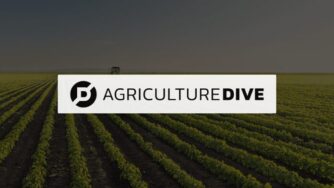The Environmental Defense Fund (EDF) and the Woodwell Climate Research Center published the report – Agricultural Soil Carbon Credits: Making sense of protocols for carbon sequestration and net greenhouse gas removals. They reviewed the 12 published protocols currently used to generate soil carbon credits through carbon sequestration in croplands including CIBO.
The report highlights three key findings:
- Soil carbon protocols take different approaches to measuring, reporting and verifying net climate impacts, and to managing the vital issues of additionality, reversal and permanence.
- Until these variations can be resolved, paying farmers to sequester soil carbon will remain an uncertain approach to greenhouse gas mitigation but can still deliver important benefits for climate resilience, soil health and water quality.
- Soil carbon sequestration can become an important mitigation strategy if there is agreed upon, credible, cost effective and consistent measurement, reporting and verification behind the credits.



